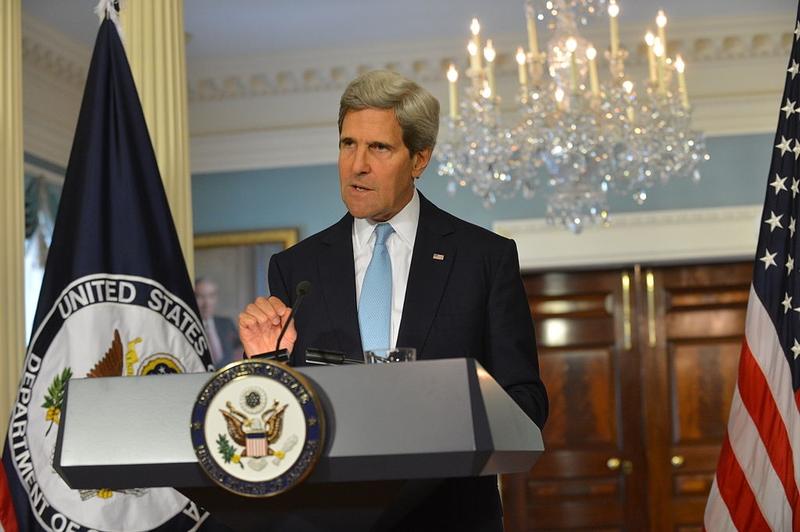On April 13, the U.S. Department of State released its annual report on human rights in the world. Once again it criticized Cuba’s record.[1]
Overall Context of the Report
Secretary of State John Kerry in a brief statement put the annual report in a broader context. He said, “ The norms referred to in this report . . . are universal norms. They are not something that we make up. They’re not some arbitrary standard of the United States, which we seek to impose on people. These are universal standards of human rights that have been adopted and accepted and are agreed to by most nations in the world, and even some nations that have agreed to them but violate them. These are the international standards.”
“{E]every government . . . has the ability to improve, including the United States. The point that we make over and over again is that respecting human rights isn’t just a moral obligation; it’s an opportunity to harness the full energy of a country’s population in building a cohesive and prosperous society. And it doesn’t jeopardize stability; it enhances it. And you can measure that in country after country where human rights are respected, people are happier, people are freer to pursue their own designs, happier and freer to be artistic and creative, to be entrepreneurial, to make a difference in the building of the community.”
Report Regarding Cuba
With respect to Cuba, Kerry stated. “President Obama and I urged the authorities to allow more political openness and online access. There is no question in my mind that most Cubans are far more interested in plugging into the world economy than in recycling arguments left over from the Cold War. The only question is how long it will take for the officials in Havana to catch up with the population.”
According to the Executive Summary of the report regarding Cuba, it “is an authoritarian state led by Raul Castro, who is president of the Council of State and Council of Ministers, Communist Party (CP) first secretary, and commander in chief of security forces. The constitution recognizes the CP as the only legal party and the leading force of society and of the state. A CP candidacy commission preapproved all candidates for the April municipal elections. The government ran these elections with relative administrative efficiency, but they were neither free nor fair; the government treated non-CP candidates differently. The national leadership, including members of the military, maintained effective control over the security forces.”
“In January the government released 53 political prisoners after official announcements that the United States and Cuba would re-establish diplomatic relations. Six of these prisoners were rearrested for various activities during the course of the year and were given longer-term prison sentences.”
“The principal human rights abuses included the abridgement of the ability of citizens to choose their government; the use of government threats, physical assault, intimidation, and violent government-organized counterprotests against peaceful dissent; and harassment and detentions to prevent free expression and peaceful assembly.”
“The following additional abuses continued: harsh prison conditions; arbitrary, short-term, politically motivated detentions and arrests; selective prosecution; denial of fair trial; and travel restrictions. Authorities interfered with privacy by engaging in pervasive monitoring of private communications. The government did not respect freedom of speech and press, restricted internet access, maintained a monopoly on media outlets, circumscribed academic freedom, and maintained some restrictions on the ability of religious groups to meet and worship. The government refused to recognize independent human rights groups or permit them to function legally. In addition the government continued to prevent workers from forming independent unions and otherwise exercising their labor rights.”
“Officials at the direction of the government committed most human rights abuses. Impunity for the perpetrators remained widespread.”
In the actual report on Cuba, however, there were some positive comments: (a) “no confirmed reports that the government or its agents committed arbitrary or unlawful killings;” (b) “no reports of politically motivated disappearances;” (c) “The law prohibits abusive treatment of detainees and prisoners;” (d) “Alternative sentencing was available for nonviolent offenders and juveniles;” (e) a “legal department within the Attorney General’s Office is empowered to investigate allegations of abuse in the prison system;” (f) “the law provides the accused the right to be present during trial and requires that defendants be represented by an attorney at trial, at public expense if necessary. Defendants’ attorneys may cross-examine government witnesses and present witnesses and evidence on the defendants’ behalf;” and (g) “the constitution protects citizens’ privacy rights in their homes and correspondence, and police must have a warrant signed by a prosecutor or magistrate before entering or conducting a search.”
Conclusion
News reports indicate that the U.S. continues to press these issues in direct negotiations with the Cuban government since the rapprochement of December 2014. But so far there appears to be little change in Cuba’s practices.
We in the U.S., however, need to try to put ourselves in the shoes of the Cubans. What would you do about civil liberties and democracy in a small, poor country of 11 million people facing a country of 320 million people with a vastly larger economy and military whose government has threatened and taken military actions against you. Moreover, that more powerful country has engaged in covert measures seeking to overthrow your government and cause regime change.
==========================================
[1] Reuters, U.S. Rights Report Criticizes China’s ‘Severe’ Crackdown on Lawyers, N.Y. Times (April 13, 2016); Assoc. Press, U.S. Cites Global Governance Crisis for Declining Human Rights, N.Y. Times (April 13, 2016); State Dep’t, Malinowski: Briefing on the 2015 Country Reports on Human Rights Practices (April 13, 20i6); State Dep’t, Kerry: Release of the 2015 Country Reports on Human Rights Practices (April 13, 2016); State Dep’t, Country Reports on Human Rights Practices for 2015 (April 13, 2016).


Great Post
LikeLike
Thx.
LikeLike